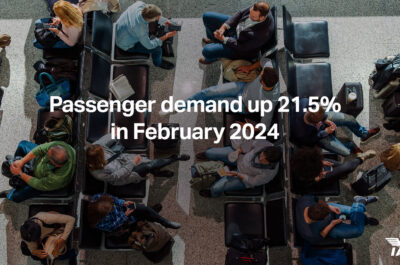The aviation sector has long realized this also. The sector supports 58 million jobs and $2.4 trillion in GDP. Over half of all international tourists and a third of world trade travels by air. Today’s modern world, for business, for families and for trade would look very different without the rapid connectivity that air travel brings.
Ministers, GIFAS colleagues,
I am honored to join you here at Le Bourget on the occasion of this very important discussion.
I will make my comments in English, but I wanted to use the opportunity of being in France on a lovely summer’s day to take my French out for a little test flight!
The magnificent Air and Space Museum a few steps from here is a reminder of technologies from the past, but air shows like Le Bourget also provide us a vision of what is possible in the future. And, with commitment from across the aviation sector, we know that future can be bright and eco-efficient.
Ministers, I don’t need to remind you that you have a tremendous responsibility in the coming six months. The COP21 discussions are a key step on the road towards a sustainable future for citizens around the planet and it is vital that all governments give the December talks the same focus and dedication I know you have been providing.
As we are so often reminded, the private sector has to shoulder responsibility too and I want to take a few minutes to talk to you about the work that the commercial aviation industry is doing on this most important of tasks.
This year is not only vital for the international negotiations on climate change, but it also marks a significant milestone in another United Nations process – the formation of goals on sustainable development. The two issues are, of course, interlinked. We cannot have sustainable economic development without strong social progress and people cannot continue to live in a world with significant climate change risks. Pulling people out of poverty has environmental benefits and moving towards a more efficient lifestyle also brings about economic gains.
The aviation sector has long realized this also. We currently support 58 million jobs and $2.4 trillion in GDP. Over half of all international tourists and a third of world trade travels by air. Today’s modern world, for business, for families and for trade would look very different without the rapid connectivity that air travel brings.
Indeed, in some parts of the world, particularly for remote communities and small island states, aviation is the lifeline to the outside world. And the growth in air travel is benefiting the trade and tourism of developing and emerging economies the most.
So, how do we reconcile the need to serve all corners of the globe, to help boost development and support sustainable tourism, whilst also taking care to reduce CO2 emissions?
I am extremely proud to say that aviation took early action on this and, back in 2009 through the Air Transport Action Group, put together a comprehensive and ambitious plan. We have spent the last six years making that plan a reality. I will not go into great detail about our climate action framework, but it includes three key goals:
1. A short-term fuel efficiency goal, which I am pleased to say we are currently surpassing.
2. A mid-term goal to stabilize net carbon dioxide emissions from aviation at 2020 levels. Coincidentally, 2020 is also the date at which the Paris Agreement we are all hoping for is due to come into force.
3. And finally a long-term goal to halve CO2 emissions from the sector by 2050.
These goals are being pursued through a package of measures encompassing new technology, operational improvements, more efficient infrastructure and – perhaps most challenging – for the 2020 goal a global market-based measure for aviation.
If you allow me, I would like to make a few observations about that climate action agenda for the aviation sector.
First of all, business groups are often criticized for operating under ‘business as usual’ conditions. I would argue that, for aviation at least, business as usual is improving energy efficiency. It has always been that way. Even before we set our industry-wide goals, the sector has been improving our fuel burn, thanks in no small part to the efforts of our manufacturer colleagues displaying their latest models here at Le Bourget. In fact, for those of you who arrived in Paris today by air, your flights produced half the CO2 per kilometer flown than they would have done in 1990. And since we signed the industry goals in 2009, airlines have spent nearly a trillion dollars putting new energy-efficient aircraft into their fleets.
The fourth pillar of our climate action plan is the development of a global market-based measure for air transport. This is unusual – to have an industry enthusiastically pushing for such regulation on an international scale is not common – but it is a pragmatic response to the likely alternative: a patchwork of unilateral, unrelated and complex taxes and charges. A global industry such as ours requires a global solution and, since the world’s governments agreed to develop the MBM at the International Civil Aviation Organisation, ICAO, we have been hard at work with them and civil society putting in place the essential foundation for an international scheme.
We firmly believe that a simple, global, offsetting mechanism that ensures fair treatment of all airlines and simplicity of design will help deliver the greatest environmental integrity in the most cost-effective way. Progress is extremely encouraging and we are putting all of our efforts into achieving a final agreement in September next year. We are confident that, given the current pace of discussions, it will be possible for an agreement to be made at ICAO next year, with the implementation details being clarified in the lead-up to 2020. This is not a process without challenges of course, but it is also the first time such a global mechanism for an individual sector has ever been attempted. Once again: aviation showing leadership.
Whilst the rest of the world is rightly concentrating on the COP21 talks in December, for us in aviation, the ICAO Assembly in September 2016 is the real focus. With all due respect for the significant progress that has been made in the UNFCCC discussions, the unique circumstances and international nature of air transport require a different approach than the UNFCCC is able to provide. I would be very concerned to see the excellent progress we see being made at ICAO impacted in any way by any wrong turns at COP21. The processes are equally important but need to be kept entirely separate. But I do believe that a good outcome in Paris at the end of the year can only help to provide momentum at ICAO too.
I would like to finish my remarks with a few thoughts on collaboration. In our sector, this is an everyday reality. But on the issue of climate change, that collaboration has grown even stronger. The goals I mentioned at the beginning were committed to not just by airlines, but also by our partner airports, air navigation service providers and manufacturers. This is an industry-wide effort. And it also goes beyond industry itself. Collaboration is taking place with governments, with civil society and with the research and academic community as well. It is an effort that requires all parties to be committed, much like the broader climate challenge. I am happy to report that we have commitment and energy and focus on the aviation front. In many ways, I believe that this is an example that other industries can follow.
We have some tough work ahead of us at ICAO and the negotiators meeting for COP21 in this very location in six months will also have a daunting task. But they can rest assured that, for one sector at least, climate action really has taken flight.
Theodore is the Co-Founder and Managing Editor of TravelDailyNews Media Network; his responsibilities include business development and planning for TravelDailyNews long-term opportunities.









































































































































































